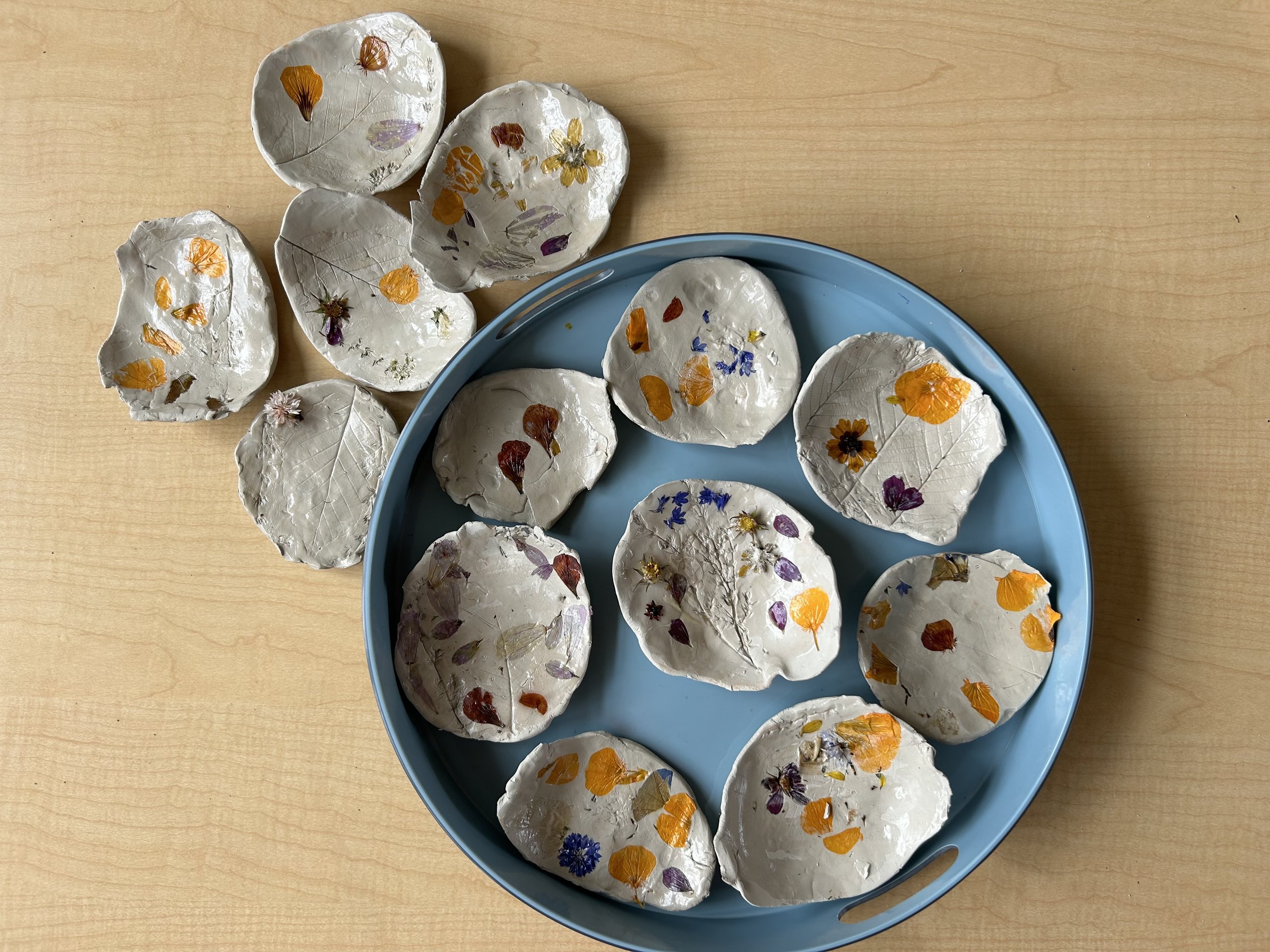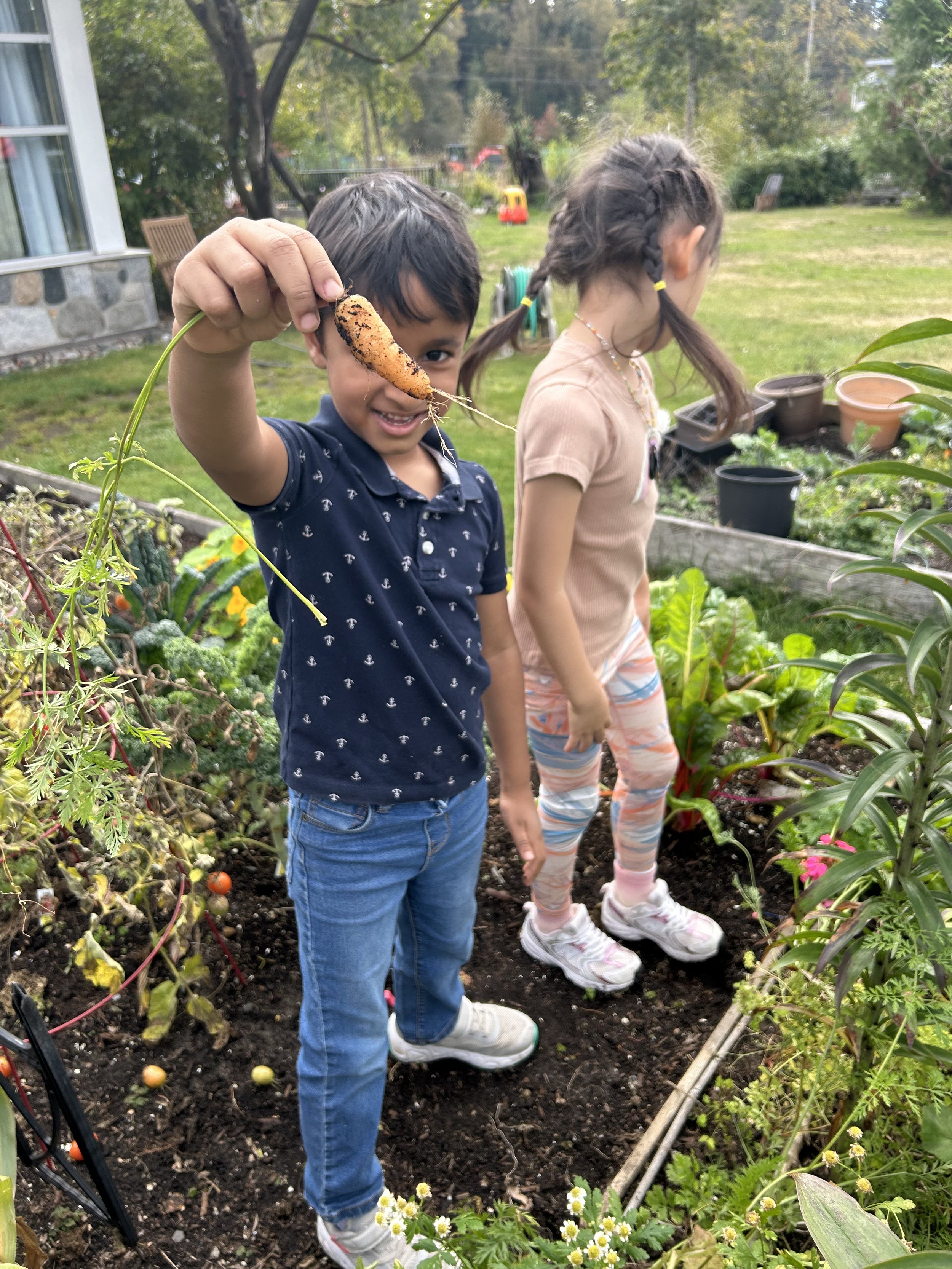Programs
3-Year-Olds: Morning Program
Schedule: Monday to Thursday, 9:10–11:10 AM
To be eligible for a September start, your child must turn 3 before the end of the calendar year. For a January start, your child must turn 3 before July of that year.
This introductory class focuses on developing communication skills, fostering peer relationships, and helping children adjust to the classroom environment—often their first time away from home. As the year progresses and the classroom dynamic strengthens, the program incorporates more Montessori Exercises and group research projects aligned with our curriculum.
Part-Time Option
Part-time spots are available in the morning program and include 2 days per week on either Monday/Wednesday or Tuesday/Thursday.
4-Year-Olds: Afternoon Program
Schedule: Monday to Thursday, 12:30–3:30 PM
To be eligible for the 4-year-old program, your child must turn 4 before the end of the calendar year.
This class begins the year with class conversations and group projects, reflecting the increased maturity of the children. Building on the foundations of communication and peer relationships developed earlier, this program emphasizes critical thinking, self-regulation, and confidence. The program concludes with a special graduation ceremony, celebrating the children’s growth and achievements.
Class Size
Each morning and afternoon class has a maximum of 16 students, led by 2 teachers, maintaining a ratio of 8 students to 1 teacher.
Inclusion Policy
At University Hill Preschool, we are committed to creating an inclusive learning environment. We welcome one neuro-divergent child per class, supported by a pre-assigned teaching support aide. Please email registraruhill@gmail.com to discuss if our program suits your child’s needs.
Our Learning Approach
At University Hill Preschool, we integrate the Reggio Emilia approach and Montessori philosophy into a flexible, child-centered framework. Our curriculum evolves each year, guided by the children’s interests, ideas, and experiences. While the four seasons provide a thematic foundation, this dynamic approach ensures learning is meaningful, engaging, and tailored to inspire creativity, critical thinking, and a love of exploration.
Key Elements of Our Learning:
-A Dynamic Curriculum
Our projects and themes are inspired by group discussions, children’s natural curiosity, and daily observations. For instance, children may delve into topics like seasons, animals, or cultural traditions based on their collective interests. This approach encourages active participation, nurtures a love of learning, and fosters exploration and discovery.
Traditional events are also an integral part of our curriculum, bringing our community together through celebrations such as holiday presentations, a Mother’s Day celebration, Sports Day, and graduation ceremonies for our 4-year-old class. These traditions encourage creativity, teamwork, and confidence while fostering a strong sense of community.
-Whole-Child Development
We emphasize growth across four key developmental areas:
Social Development: Children transition from solitary play to engaging in cooperative activities, fostering essential social skills such as communication, teamwork, and empathy.
Emotional Development: Play nurtures confidence, independence, and resilience while encouraging creativity, problem-solving, and decision-making.
Fine and Gross Motor Skills: Activities such as balancing, throwing, or crawling help children develop motor skills and enhance spatial awareness.
Cognitive Development: Engaging in play stimulates curiosity, critical thinking, and problem-solving. Children explore cause-and-effect relationships, build language and math skills, and deepen their understanding of the world.
-Hands-On Exploration and Outdoor Learning
We believe in the power of creativity, nature, and experiential learning. Children are introduced to various mediums of self-expression, such as paint, clay, wires, charcoal, and overhead projectors. These activities spark creativity, discovery, and problem-solving, enabling children to transform their thoughts and ideas into tangible creations.
The Power of Clay
Clay holds a special place in our classroom as a tool for sensory and creative exploration. Through kneading, molding, and shaping clay, children develop motor coordination, spatial awareness, and hand-eye dexterity. Whether crafting simple objects or intricate sculptures, clay promotes storytelling, experimentation, and teamwork, building each child’s confidence and creativity.
Outdoor Learning
We are firm believers in the power of nature, fresh air, and outdoor learning. We ensure outdoor time is a part of our daily schedule, and when the weather permits, we engage in gardening activities and take forest or neighbourhood walks. Our location beside Pacific Spirit Park and near UBC’s playgrounds provides ample opportunities for nature walks and outdoor exploration.
Our community garden allows children to plant seasonal seeds and bulbs, observe their growth, and harvest the results. For example, children recently planted potatoes, which they later enjoyed as homemade French fries—a fun and educational experience! Nature walks through Pacific Spirit Park and the beautiful University of British Columbia provide opportunities for children to engage with the environment, observe wildlife, and nurture a lifelong appreciation for nature. These outdoor adventures promote physical activity, teamwork, and observational skills while inspiring curiosity and creativity.
A typical Day in Our Preschooler’s Life
Our carefully planned daily schedule balances structure with flexibility to provide an enriching experience:
Outdoor Play: Starting the day with fresh air and active play, children enjoy our fenced-off playground located conveniently next to the preschool.
Snack Time: Snack time is an excellent opportunity for kids to develop important skills like sitting together, practicing table manners, and improving their eating skills.
Group Time: Through group play children learn to foster communication, teamwork, and collaboration among kids. Through shared activities and discussions, children learn to express themselves, listen actively, and work together effectively. Here are some ideas to make group time engaging and productive:
Free Play: Free play is a crucial time for children to explore their interests, practice decision-making, and develop creativity. By allowing self-directed exploration, kids can build confidence, problem-solving skills, and independence
Story Time: This is the time to wind down the day, spark creativity, and encourage a love of learning.
We design projects based on seasonal themes and the children’s interests, ensuring relevance and engagement. Cultural diversity is embraced through celebrations of various festivals, incorporating music, movement, and hands-on activities that deepen understanding and appreciation.
"Nurturing a sense of well-being and belonging supports children as they learn about and investigate the world around them." (Early Learning Framework 2019)
















